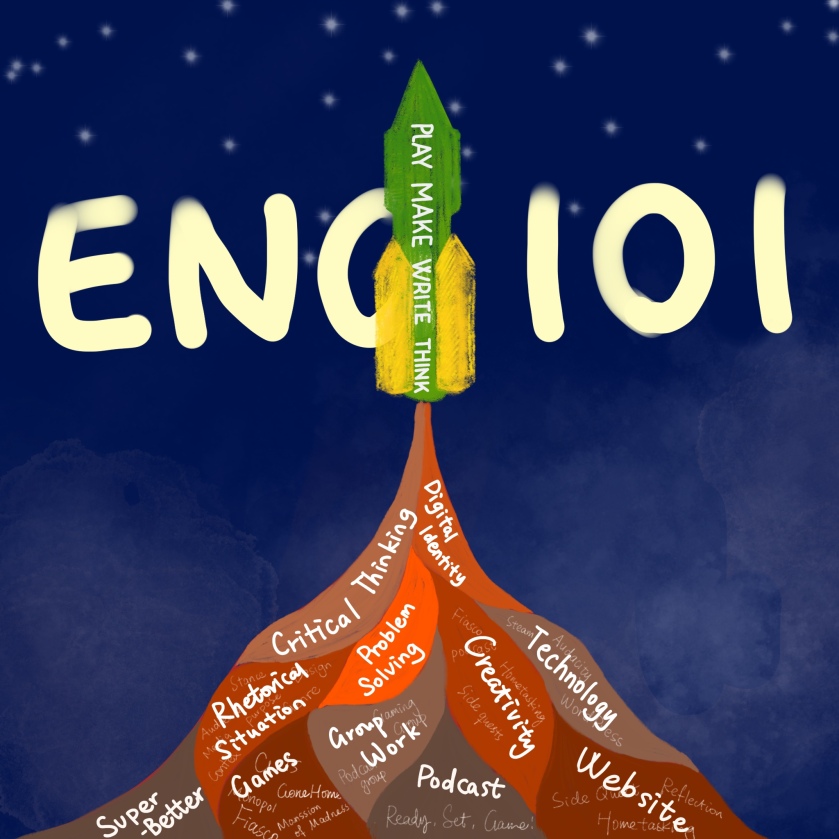THRILLING TETRIS: PODCAST REFLECTION
In this podcast episode where I was the assistant producer, we focused on the game Tetris. In this episode, the producer, Rachel, and I divided the tasks in two ways. First off, we both played Tetris individually and compared our experiences to one another to get a glimpse of what we would talk about in our podcast discussion. Then we made a script that addressed the topics in our description of the podcast, and then split up the script evenly to discuss.
In this episode, we focused a lot on probing. We realized that there was a lot of people that were noting probing and how it was a useful technique in the game, so we analyzed the game to see if it related to out game as well. In fact, we noticed that Tetris was a game of probing all around and therefore we analyzed it. This was very effective for us because it not only enhanced and related strongly to the mentioning of probing the previous episodes, but it also strongly enhanced the purpose of the podcast as a whole. It allowed us to break down a simple game like Tetris into something that is perhaps overlooked while playing the game which is probing. In addition to making sure that we were enhancing and following the objective of the podcast as a whole, we also tried to discuss why the game is so addicting. I mean, Tetris revolves around placing a bunch of different pieces that have different shapes to match up and align before it gets to the top. Although it sounds so simple, its so addicting and intellectually complex. In fact, there is even worldwide competitions for the game. So, in this podcast we dove into how Tetris produced an addicting phase within the brain where it is intellectually stimulating. There wasn’t many challenges in reaching these outcomes and goals that we had for this podcast, but in the beginning it was a little challenging. It was a little difficult to think deeply about Tetris and how we can possibly analyze such a simple game, but after playing the game a few times and discussing the strategies, we were able to effectively think deeper about the game and the techniques required to be successful at it.
For this podcast episode, while there all of the learning outcomes for the course were touched on, there were two learning outcomes that were really utilized in this episode. One of the learning outcomes that was really touched upon was collaboration. This episode, there was a little road block because I caught coronavirus (unfortunately). However, I could not leave my peer (Producer Rachel) hanging so I had to tough it out. When I first got sick, Rachel produced most of the script. But then after rehearsing it, we realized that it was not enough time. So, I had to jump in and we collaborated on the topics and ideas we can add so that it can extend the time. Adding on to this, another learning outcome that was greatly touched upon during the creation of this podcast episode was writing as a process. Like previously mentioned, it was a bit of a struggle to write and discuss for Tetris. It was an easy game that we both had access to which made it ideal, but the simplicity and commonality of it made it hard to discuss. But like the title said… it’s a process. We had to play the game multiple times, edit and take out things that did not completely make sense, plan, plan some more, and make sure we relating to the description of the podcast. It did not come easy, but good writing that has substance did not come easy, and this podcast episode really taught me that and allowed me to endeavor into it. I can use these skills for future writing projects in several ways. One way is that I can not give up. We could have easily given up in the beginning when we thought that we were not going to be able to produce creative discussion around it, but we stuck out with it. And we were able to have pretty good outcomes of it. Another way is brainstorming. Usually, when I write I do not thoroughly plan things out and sometimes that can cause my writing to not be as sophisticated. However, Rachel started a planning document and it really helped us remain focused and narrowed down our writing, which was super beneficial and I feel like it will also help with the concision and depth in my future writing


